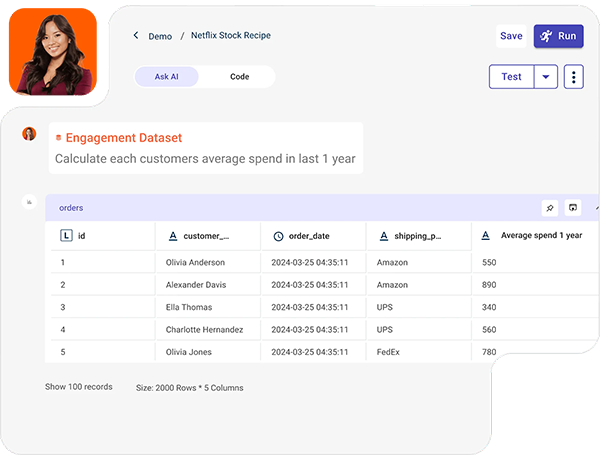Artificial intelligence has already significantly changed marketing. Automated advertising campaigns, ai intelligent agent, personalized recommendations, and chatbots have become the standard in 2024. Brands use AI for data analysis, content creation, and advertising budget optimization.
But what awaits us next?

If today AI already analyzes user preferences, by 2025 personalization will become even more precise. Algorithms will be able to predict customer desires with minimal error:
This will allow companies to create more personalized and attractive offers, increasing the likelihood of successful sales. Customers will receive perfectly tailored recommendations and advertisements, making their shopping experience more satisfying and comfortable. As a result, brand loyalty will increase, and the company’s conversion rate and profits will rise.
Automation will continue to evolve. Already today, AI helps with routine tasks, but by 2025, the level of automation will be even higher:
This will allow companies to save time and resources, as well as increase the effectiveness of their marketing campaigns. However, despite all the advantages of automation, it is important to remember that human intervention and a creative approach will always be necessary for successful marketing processes. Ultimately, the combination of AI and human intelligence will help achieve optimal results in the field of marketing.
AI already knows how to analyze data, but by 2025 it will not only predict trends but also provide clear recommendations:
This will significantly simplify the decision-making process and help marketers respond more quickly to market changes. Overall, the use of AI in the marketing field will allow companies to be more competitive and successful in the market.
Generative AI and its impact on marketing
Generative AI has already demonstrated its strength in content creation. From AI assistants, we can now expect:
AI can significantly simplify and accelerate the content creation process, but decisions made based on data analysis and strategic thinking will remain the domain of humans. Marketers will be able to use generative AI to automate routine tasks and improve the efficiency of their work, but their expert opinion and creative approach will remain essential for developing successful marketing strategies.
With the development of AI, new questions will arise:
Despite all the advantages of using generative AI in marketing, it is important to remember that expert opinion and the creative approach of specialists will remain key elements in developing successful strategies.
AI in marketing will continue to evolve. Those companies that start implementing AI tools right now will gain a competitive advantage. What you should start doing right now:
The AI revolution is inevitable. The question is only who will adapt faster and be able to use the technologies to their advantage.

Thanks for choosing to leave a comment. Please keep in mind that all comments are moderated according to our comment Policy.